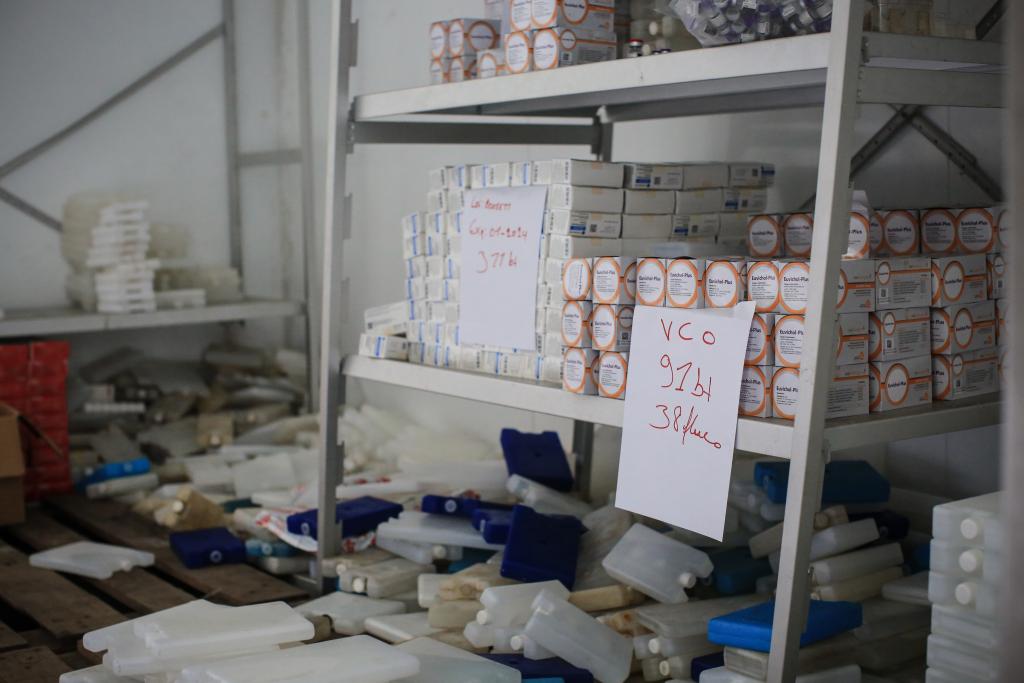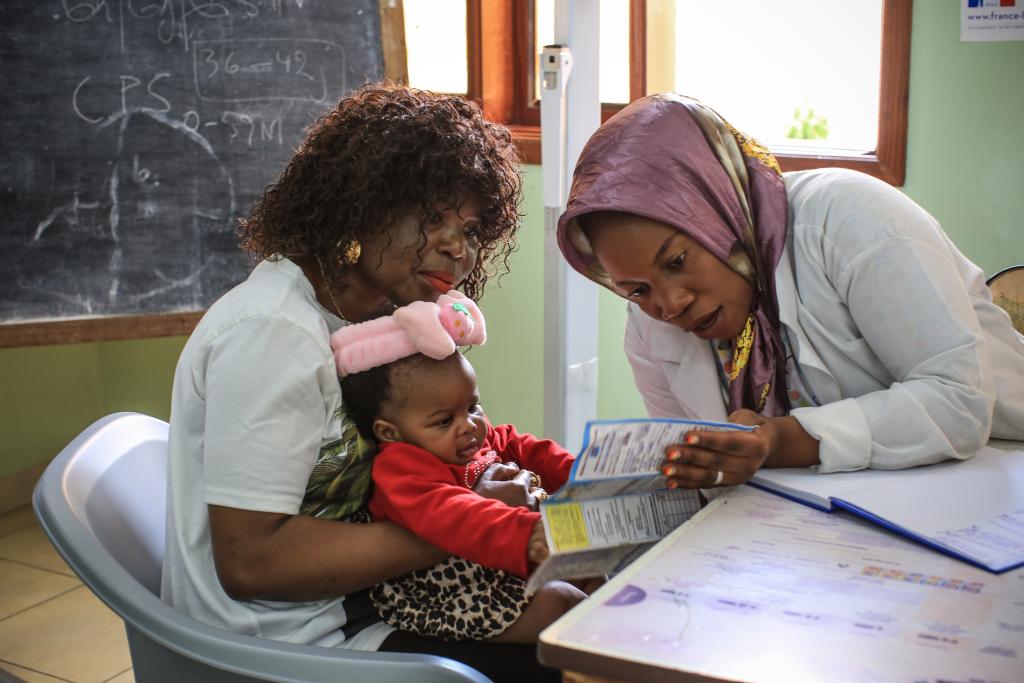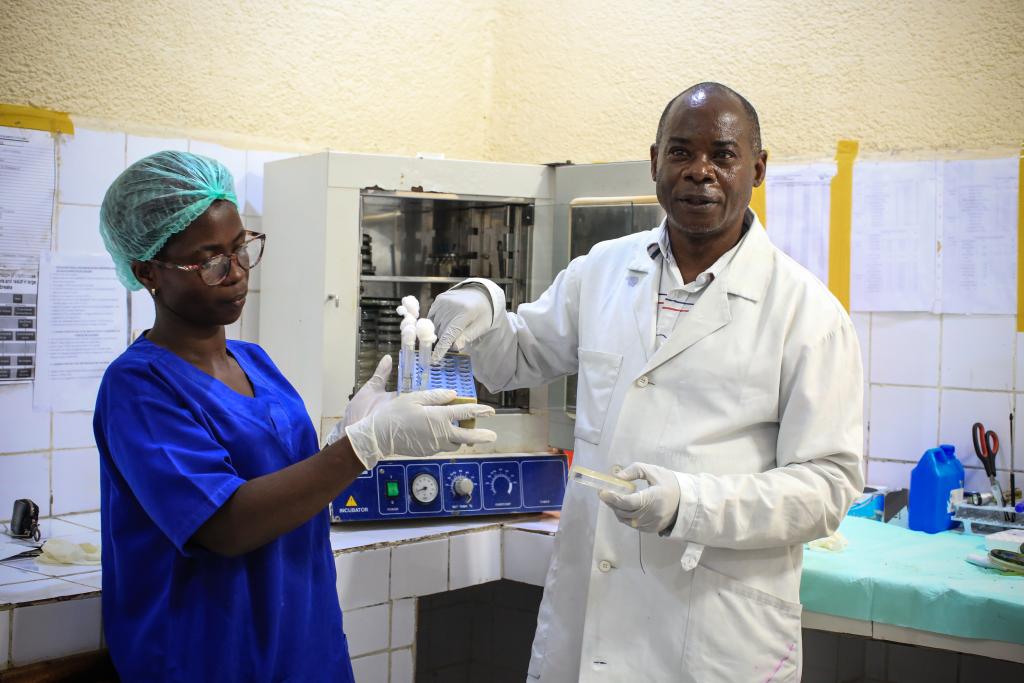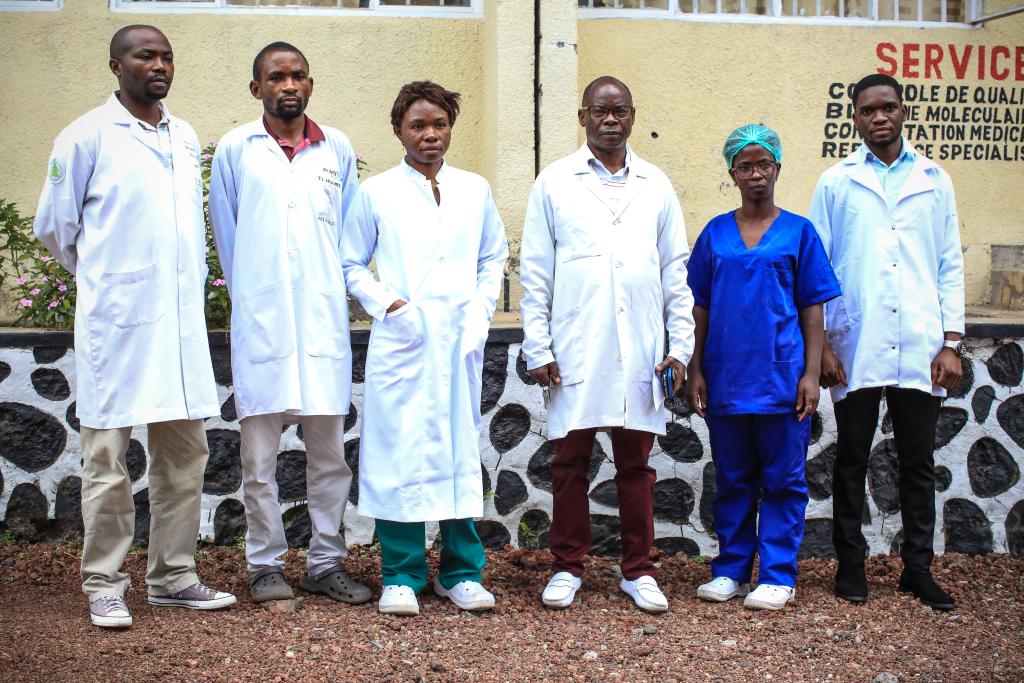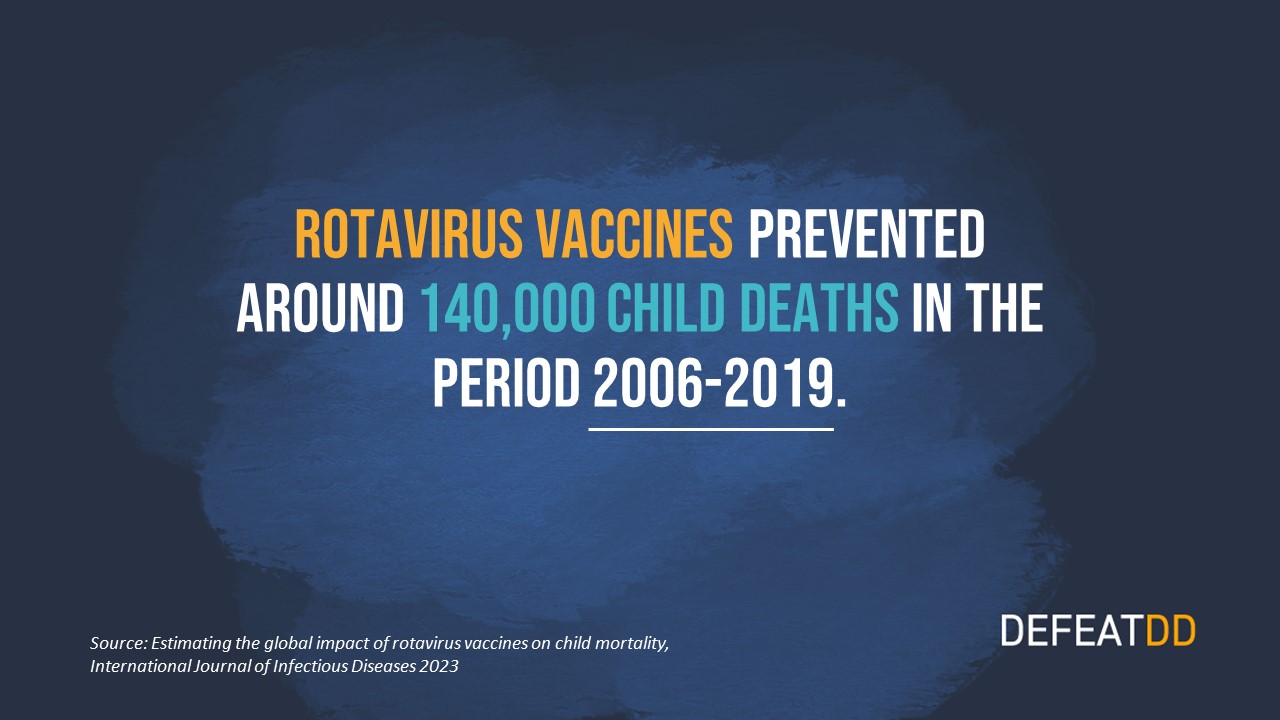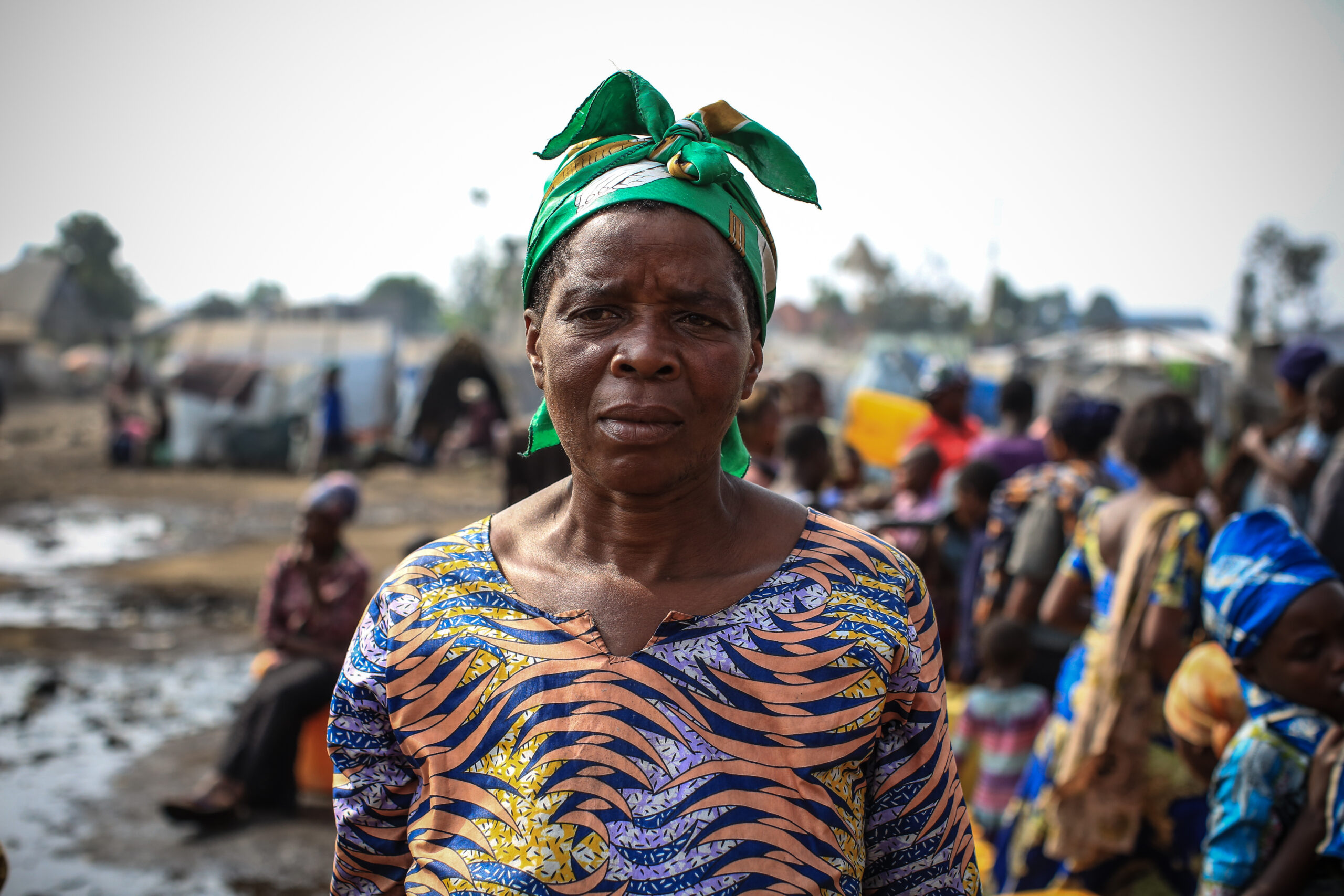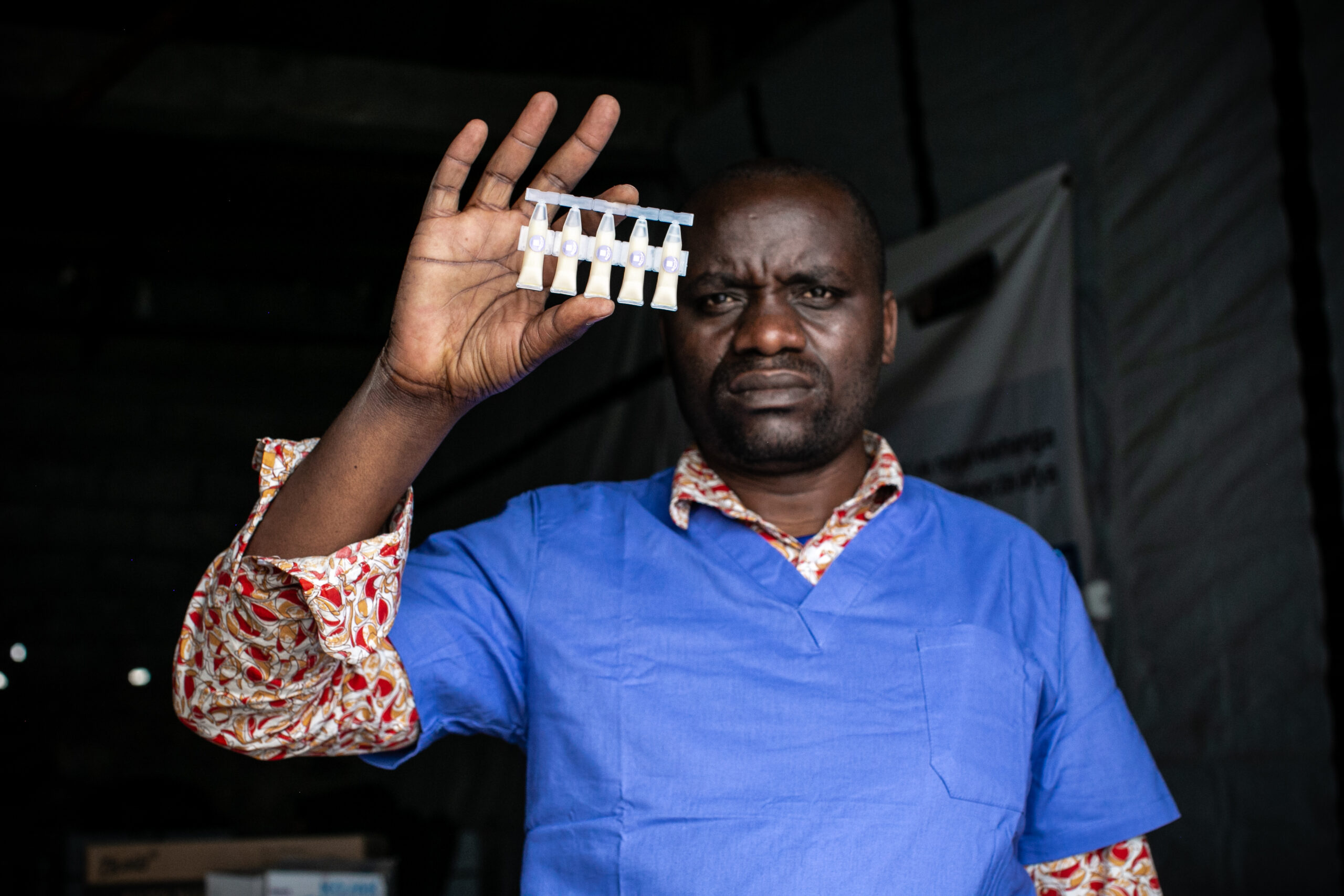Keeping close watch on cholera
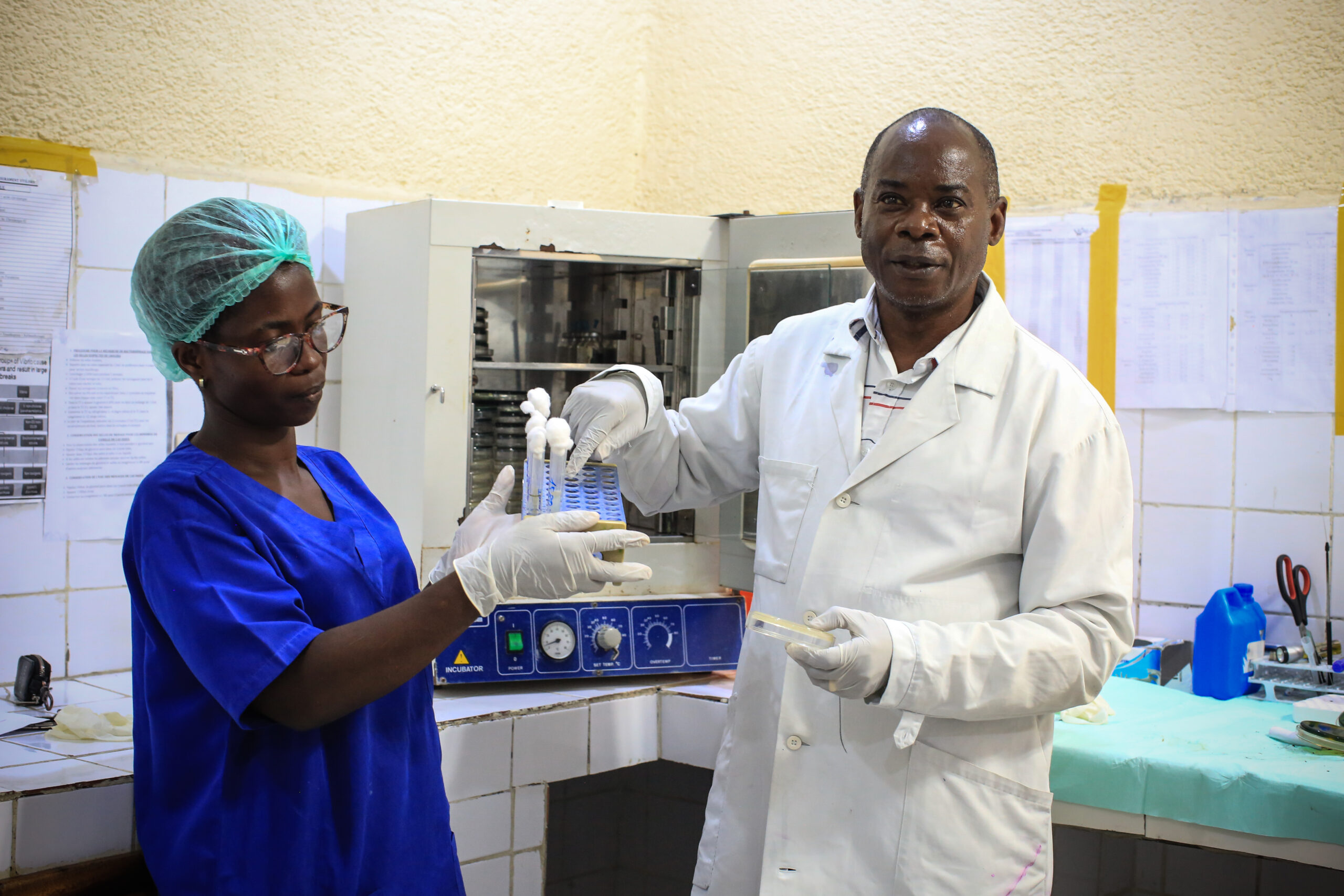
Emergency situations intensify the risk of severe diarrhea. Waterborne diseases like cholera spark
epidemics amid conflict, flooding, drought, or even displacement from volcanic eruption. Vaccines and education can save lives.
Dr. Raphaël Senga is a regional laboratory director. Explore his story below, and learn more from the others we interviewed for this series:
– Joseph Muhisi, nurse supervisor
– Espérance Leonard, mother of nine
– Augustin Mikizi, community liaison officer
Photos: PATH/Ley Uwera.
North Kivu is cholera-endemic, and Kabangwa Senga Raphael’s team is tracking a dangerous strain ravaging local camps for internally displaced people.
“A crowded environment where there is no water, or toilets, plus a high concentration of people, creates unsanitary conditions,” Raphael explained. These factors create the conditions for cholera to spread quickly.
“Our teams are dispatched to the IDP camps to take in-depth samples,” added Raphael, who directs the regional healthcare laboratory.
These disease detectives monitor the spread of cholera in real-time, so that health workers can target solutions where they are needed most. Cholera vaccine campaigns and community education offer the best chance at protection from this resilient risk.


